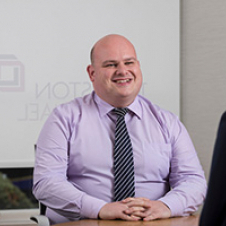Is VAT ever recoverable on buying a car?
The recovery of VAT on cars has always been a contentious area for UK businesses with HMRC typically taking a robust approach and denying such claims. However, a recent First Tier Tribunal case over such VAT recovery has found in the taxpayer’s favour. This case may be of interest to VAT registered businesses that have incurred VAT on the purchase of cars exclusively for their business purposes.
Since the introduction of UK VAT in 1973 there has been an input tax block on cars. Many arguments between businesses and HMRC have resulted in court cases which debated the ability to recover the VAT incurred on cars. In the current landscape there are limited instances where HMRC will permit such VAT recovery.
An example is when a car is used exclusively for business purposes. HMRC’s guidance advises this applies if the car is only used for business journeys and is not available for any private use by employees or anyone else. In practice the availability part of the test is often where businesses struggle.
In practice the availability part of the test is often where businesses struggle.
Barry John Graham failed to persuade HMRC that he was entitled to claim the £20,805 of VAT he incurred purchasing some high-end cars for his business. As a specialist in mainframe computers Mr Graham charged his clients fees of £3,000 - £5,000 per day. As such Mr Graham wanted to signify his status with the cars used by his business when he or his representatives visited clients.
HMRC did not believe that Mr Graham had demonstrated the cars were not made available for private use and refused to repay the VAT he had claimed.

Mr Graham took his case to the First Tier Tribunal service. His defence for claiming the VAT focused on:
- The car keys were kept in a locked safe. Only Mr Graham had the code for the safe, which he would provide if a car was required for a business purpose. The code was regularly updated.
- Mr Graham had contracts with each of his children, who worked as contractors for the business, that expressly forbid the private use of the cars.
- Mr Graham had a personal car that he would sometimes use for business, but he would never use the business cars for personal use.
- The car users have a personal car of equivalent status.
- Mr Graham checks the mileage of the cars against the major trips that he and others made. This analysis accounted for 93% of the miles of the cars.
- Mr Graham had been in business for decades and was aware of the VAT rules for cars. In fact, VAT recovery was discussed and permitted by HMRC following a previous VAT visit. The VAT legislation had not changed since this previous HMRC correspondence on the same matter.
HMRC’s argument centred on the availability of private use as follows:
- The insurance policies always included social use coverage and are now exclusively insured for social use. During the case Mr Graham explained that the policies were arranged by his wife who was suffering from brain cancer at the time and making uncharacteristic mistakes, so the Tribunal disregarded this point.
- The cars were normally parked at Mr Graham’s address, meaning there is no physical barrier to private use, thereon the cars were “made available” for private use, a key point in various court cases on car VAT deduction.
- The contracts Mr Graham had with his children which forbid the use of the cars privately in practice do not prevent the private use of the cars.
The First Tier Tribunal considered all the facts and concluded that Mr Graham did not intend to use the cars privately, and that he did not intend to make the cars available for the private use of anyone. They were satisfied with the physical and contractual impediments that Mr Graham had put in place. It follows, in principle, that HMRC should repay Mr Graham’s VAT claim for car purchases.
But before you submit a VAT claim you should note that First Tier Tribunal decisions are persuasive only for other taxpayers. As such the decision in Mr Graham’s case does not provide watertight support for other businesses.
There is a chance that HMRC will appeal the decision to a higher court. If they decide in HMRC’s favour Mr Graham will not receive his VAT refund. Though a win for Mr Graham at a higher court would strengthen his and other businesses VAT claims.
Please contact me, Tony Cochrane, or another member of the Johnston Carmichael VAT team if you would like to discuss the recovery of VAT on the purchase of cars.

